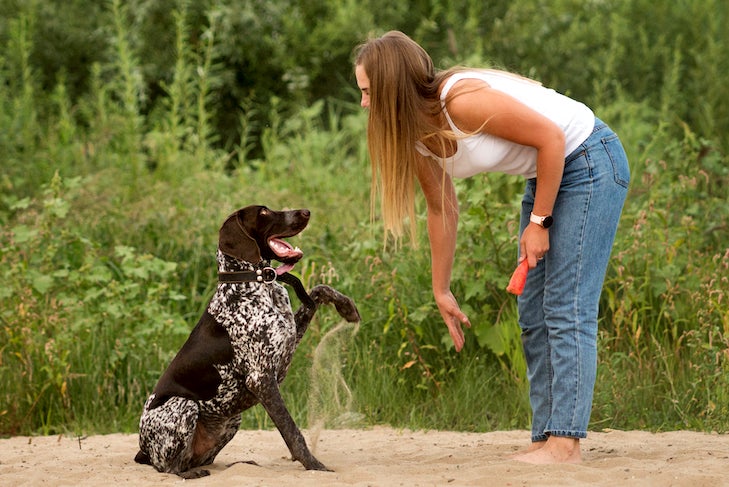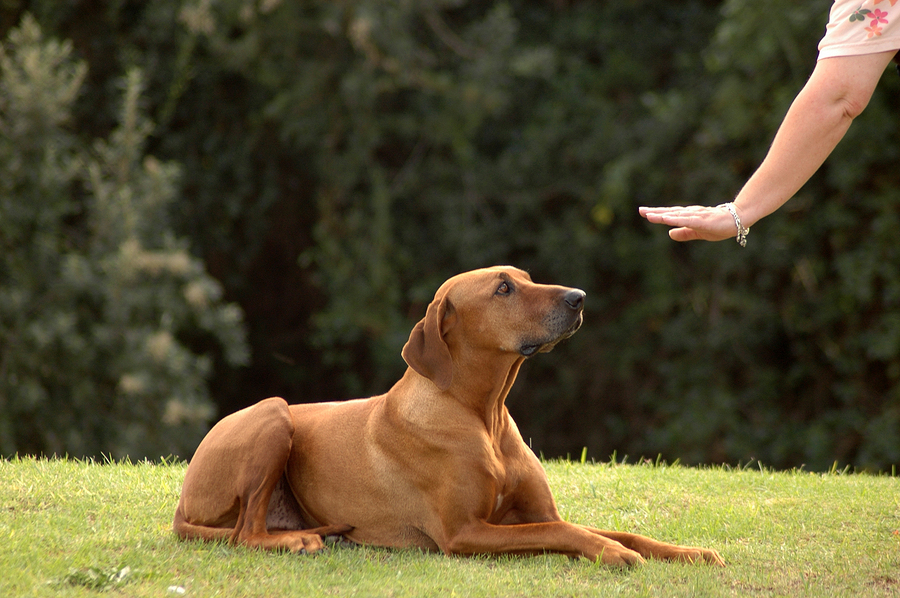Top Canine Training Tips for a Mannerly Friend
Educating your pet dog to be a well-behaved friend requires a nuanced understanding of canine habits and the implementation of efficient strategies. The journey to a genteel animal entails more than just these basics; it demands a much deeper exploration of methods that can change your training method.
Recognizing Dog Actions
Understanding canine habits is important for reliable dog training and cultivating an unified relationship in between pets and their owners. Pets are complex creatures, showing a large range of actions influenced by genetics, atmosphere, and socializing. Recognizing the underlying motivations for a pet dog's activities-- such as fear, enjoyment, or territorial impulses-- can dramatically improve training efficiency.
Observing body language is a critical facet of comprehending canine actions. Tail setting, ear orientation, and stance can give beneficial understandings into a dog's mood. For instance, a wagging tail does not constantly show joy; it can likewise symbolize frustration or anxiousness. Social communications with various other pets and people play a vital function in shaping actions. Pet dogs that experience positive socialization are generally extra versatile and courteous.

Essential Educating Commands
Grasping crucial training commands is vital for developing reliable communication in between dogs and their proprietors. These commands function as the structure for a mannerly canine and can dramatically boost the overall connection between family pet and proprietor.
"Keep" strengthens a canine's ability to continue to be in one setting, promoting self-constraint. "Down" advises your canine to lie down, which can aid in handling excited actions. "Heel" shows your canine to walk along with you, promoting better chain manners.
Practicing these commands in various atmospheres helps pets generalize their training and respond appropriately, no matter of diversions. By investing time in teaching these essential commands, proprietors can cultivate an unified and considerate connection with their canine buddies, enhancing both security and enjoyment in daily interactions.
Positive Support Techniques
Favorable reinforcement methods are essential approaches in pet dog training that concentrate on gratifying wanted behaviors to motivate their reappearance. This method leverages the all-natural knowing procedures of canines, allowing them to associate certain actions with favorable outcomes. By utilizing treats, appreciation, or playtime as benefits, trainers can successfully motivate canines to duplicate the habits they wish to reinforce.
To apply positive support, it is important to deliver rewards immediately after the desired habits occurs. This assists the pet dog make a clear connection in between their activity and the reward. Uniformity is likewise vital; rewards should be given whenever the wanted behavior is displayed throughout the first training phase, gradually transitioning to a variable routine as the behavior ends up being extra dependable.
Understanding your pet dog's preferences can boost the training experience. Eventually, favorable support promotes a relying on connection between the dog and owner, making training an extra delightful and reliable procedure that develops a well-behaved friend.

Socialization Techniques
Effective socialization approaches are essential for a pet's advancement, as they help develop an all-round and confident companion. Early exposure to numerous settings, individuals, and other pets is vital to protect check this against behavioral problems in adulthood. Start this procedure during the critical socializing duration, which usually takes place between three and fourteen weeks of age.
Present your puppy to diverse stimuli, such as different surface areas, seems, and smells. Managed encounters with other pet dogs and pleasant people can foster favorable associations. Pup classes are an exceptional resource, offering structured settings for social communication and learning fundamental commands.
Progressively raise the complexity of socialization experiences. Take your pet dog to parks, pet-friendly stores, and public events, making sure each experience declares. Observe your dog's reactions and eliminate them from frustrating scenarios to avoid fear-based reactions.
Use favorable reinforcement to award calm and confident actions throughout social communications. This can include treats, praise, or play. Bear in mind, perseverance is essential; each dog has its very own rate for adapting to new experiences. By implementing these socializing techniques, you lay the foundation for a well-adjusted and friendly canine buddy.
Uniformity and Regular
Developing consistency and routine in canine training is necessary for fostering a sense of safety and understanding in your pet. Canines prosper on predictability; recognizing what to expect assists them really feel secure and lowers stress and anxiety.
Including an organized routine into your training sessions likewise boosts your pet's learning experience - Dog training near me. Arrange everyday training sessions at the same time daily, ensuring that both you and your dog are mentally prepared. Short, constant training sessions are more reliable than long, seldom ones; aim for 5 to 10 mins of concentrated training numerous times a day
In addition, uniformity must prolong past official training sessions. Integrate training into everyday tasks-- compensate your pet for resting before meals or walking calmly on a chain. This enhances discovered habits and creates a cohesive training setting. On the whole, a regular strategy, coupled with an organized regimen, lays the structure my link for a well-behaved companion, advertising an unified connection between you and your go to website canine.
Final Thought
Positive support strategies offer to encourage wanted actions, while early socializing prepares dogs for diverse settings. By stressing these essential aspects, the bond in between proprietor and dog enhances, eventually leading to an unified and meeting relationship.
Comments on “Effective puppy behavior training techniques for your dog’s growth.”